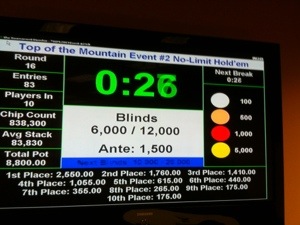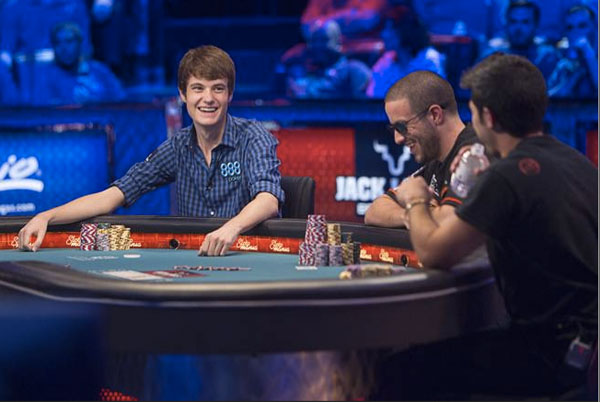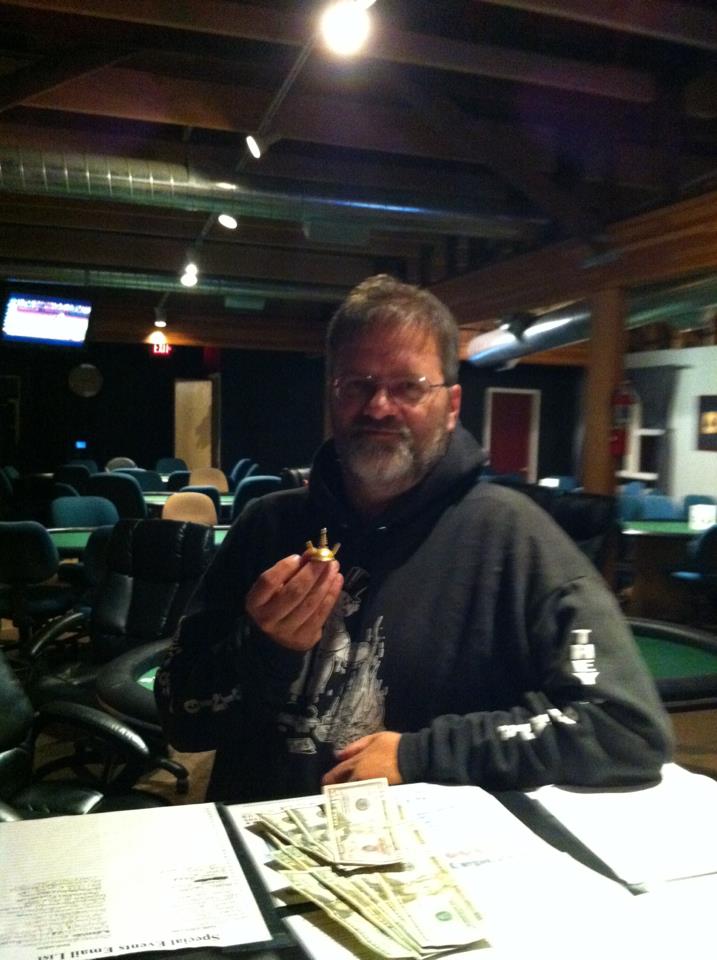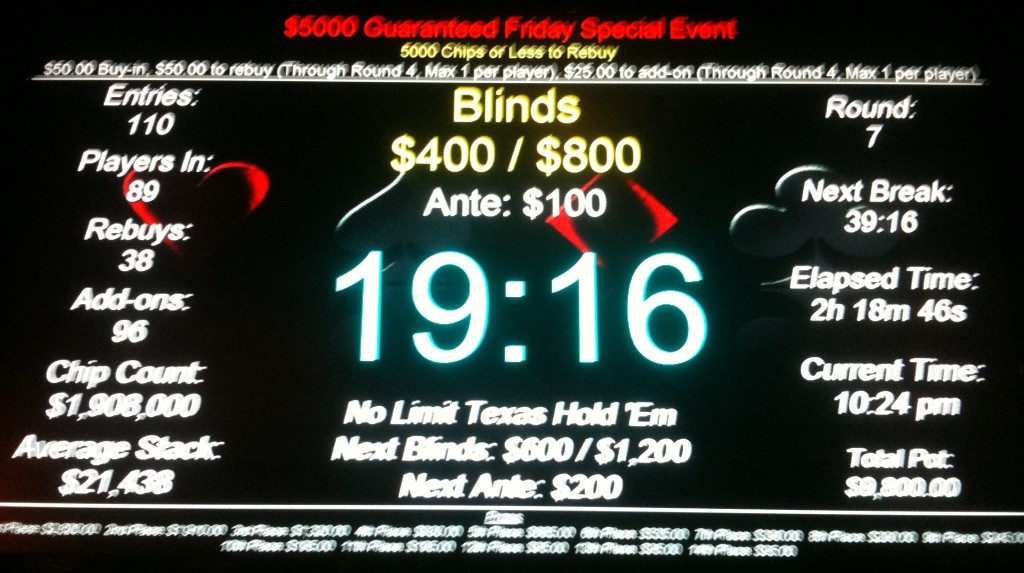Final Table $20K Guarantee NLHE (T10,000)
I’ve had some success in Final Table’s $10K tournaments over the past year, but in fourteen outings, I’d never been able to crack one of their bigger events until last night. They run a $20K the first Friday of the month. In months like May, with a fifth Friday, they run another, so you get the nice benefit of big tournaments for low buy-ins in consecutive weeks, this year just in time for the summer Vegas poker blowout.
The game didn’t get off to an auspicious start, with the tournament software crashing just after the start of the second 25-minute level. The staff apparently hadn’t saved the game file, so even though things started off on time at 6pm, the tedious task of going through and figuring out who was where took over 20 minutes; we were just lucky that the crash didn’t happen further into the tournament after a bunch of rebuys, or after the break when add-ons were in play.
My game started off decently but then I took a big hit and was down to 60% of the starting stack. The turning point for me was a lucky river Qx when I was all-in pre-flop with queens against kings. Lost most of my add-on after the break, but then floated pocket nines on a flop with two kings and made a full house on the turn, which got me all-in against trip kings.
I kept on hitting sets through the night. Four hours in, just after the second break, a player who’d shown two pocket pairs of aces and a pair of kings ended up all-in against me with Qx Jx against my flopped set of tens, a hand that pushed me up to 110,000. Five minutes later, I didn’t make much money but won a hand with flopped quad nines.
I yo-yoed down to 70,000, up to 90,000, and back down to 60,000. Then luck struck again and I was all-in pre-flop with 9x 9x against Kx Jx. The flop was Ax Qx Jx and I was shoving my chips forward until I saw the dealer pushing the pot and the other player’s chips toward me, because I’d hit a flush. That put me back over 100,000.
A button raise while we were six-handed at four tables was a gift. I raised from HJ with Ax Kx and got a call from BB. The flop was A♠ 8♠ 6♠ and I shoved, despite not having a spade. BB dialoged and tried to get me to answer questions, before finally calling after several minutes with Ax Qx, also without a spade. For most of his stack. I couldn’t complain.
An hour later, seven-and-a-half hours into the game, action folds to short-stacked SB, who shoves with Ax 6x. I have Ax Kx and call and knock him out, putting me up to 240,000. We hit the money bubble about ten minutes later.
The tournament chip leader was on my immediate right at two tables, and he was raising liberally. Eventually, I shoved on him with Qx Qx and he called with Ax Kx. First card in the window was an ace, but the queen followed right behind and the rest of the board was low, doubling me up to the point where I had about a fifth of the 3.1M chips in play when we got to the 10-handed final table.
A couple deals were floated, but there were holdouts for each one. Typically, because of IRS reporting rules, the prize pool gets chopped up so the players make less than $5K each, under the reporting trigger point, but not tonight.
I was up to 900K at six-handed. The last point where an even chop of the money was less than $5K was at 4-handed, but the fourth player went out without a deal.
I shoved Kx Qx from SB and got called by the short stack in BB with Ax Kx, then had to play the shortie myself, though to be true, nobody was particularly deep-stacked at 25,000/50,000/5,000 and only 60BB between the three of us. I still had about 10BB.
My last hand was Tx 4x in BB. The big stack limped in from the SB and I should have shoved, knowing that I couldn’t do any worse than third place and that he was likely pretty light, but I neglected to do it and thought I might be good with a ten-high un-coordinated flop. He checked and I shoved, but got Brunsoned when his Tx 2x had flopped two pair. Like I said, I couldn’t do any worse than third at that point.
Only about half the payout I would have liked. With other events putting a brake on my earnings the past month, my summer Vegas bankroll isn’t where it needs to be, but I’m still hoping to catch the end of the WSOP.
Ten hours and thirty minutes. 3rd of 156 entries. 1563% ROI.




